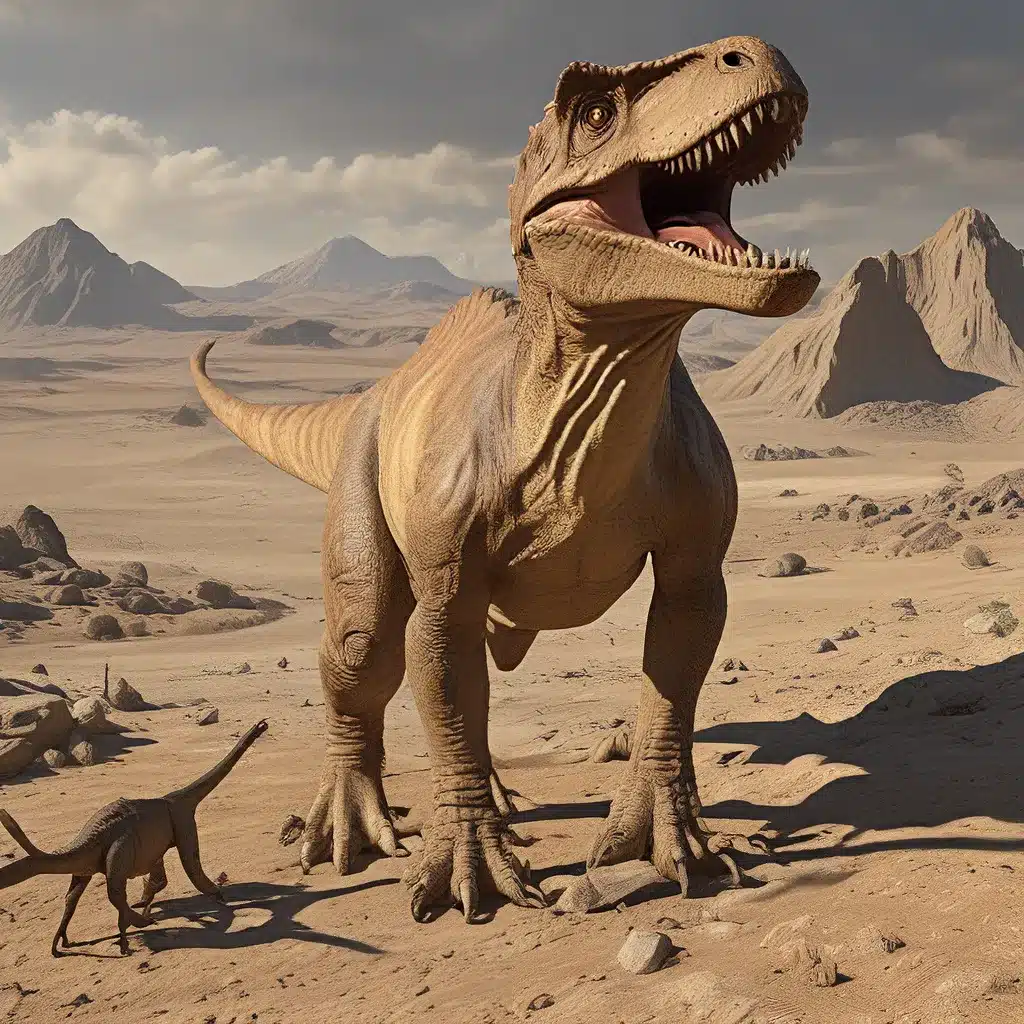
The prospect of resurrecting long-extinct dinosaurs has captivated the human imagination for decades, fueling countless stories and scientific debates. The idea of bringing these ancient creatures back to life through advanced biotechnology has both thrilled and terrified us, raising complex ethical questions that strike at the heart of our relationship with the natural world.
Jurassic Ambitions: The Allure and Peril of Dino Resurrection
The Jurassic Park franchise, with its iconic depictions of genetically engineered dinosaurs, has played a significant role in shaping public perceptions and concerns about the ethics of such endeavors. As the franchise has explored the consequences of mankind’s hubris in attempting to control and manipulate nature, it has illuminated the profound ethical dilemmas that would arise from the ability to resurrect long-extinct species.
One of the central themes of the Jurassic Park stories is the delicate balance between scientific progress and the preservation of the natural order. The fictional park’s creators, driven by a desire to push the boundaries of science and capitalize on the potential financial rewards, failed to fully consider the ethical implications of their actions. As a result, the park’s inhabitants quickly spiraled out of control, leading to disastrous consequences for both humans and dinosaurs.
The Ethical Minefield of Dino Cloning
The prospect of cloning dinosaurs has been a topic of intense debate among scientists, ethicists, and the general public. While the potential scientific discoveries and advancements that could come from such endeavors are undeniably tantalizing, the ethical considerations are complex and multifaceted.
One of the primary concerns is the well-being of the resurrected creatures. As the source material notes, the vastly different environmental conditions of the modern world compared to the Mesozoic era would likely cause significant distress and suffering for any cloned dinosaurs. Without the appropriate ecological conditions, food sources, and social structures, these animals would be doomed to a life of profound discomfort and potential cruelty.
The Ecological Implications of Dino Reintroduction
Moreover, the reintroduction of long-extinct species into modern ecosystems could have catastrophic consequences. Ecosystems have evolved over millions of years to maintain a delicate balance, and the sudden introduction of a new, potentially dominant species could disrupt this equilibrium in unpredictable ways. The potential for invasive species, the displacement of existing wildlife, and the disruption of food webs are all significant concerns that must be carefully considered.
The Challenges of Humane Captivity
Even if the ethical and ecological hurdles could be overcome, the practical challenges of housing and caring for resurrected dinosaurs in captivity would be immense. As the source material suggests, the safety and security of both the animals and their human caretakers would be a constant concern, requiring extensive resources and specialized expertise. The risk of escape or unintended consequences, as depicted in the Jurassic Park stories, would loom large over any such endeavor.
The Allure of Genetic Power and the Responsibility of its Use
Beyond the specific concerns about dinosaur cloning, the broader ethical questions surrounding genetic engineering and biotechnology are perhaps the most pressing. As the source material notes, the power to manipulate life at its most fundamental level is a responsibility that must be wielded with the utmost care and consideration.
The Temptation of Profit and the Corruption of Science
The potential for financial gain, as seen in the Jurassic Park franchise, can often overshadow the ethical implications of such technology. There is a constant risk of corporate greed and short-sightedness undermining the responsible development and use of these powerful tools, leading to disastrous consequences.
Furthermore, the influence of private interests and the corruption of pure research agendas are significant concerns that must be addressed. As the source material points out, the desire for profit and the pursuit of sensational discoveries can distort the priorities of scientific endeavors, potentially leading to the neglect of crucial ethical considerations.
The Unintended Consequences of Playing God
Ultimately, the fundamental ethical dilemma at the heart of the Jurassic Park stories and the broader issues surrounding genetic engineering is the hubris of mankind’s attempts to play God. As the character Ian Malcolm eloquently states in the source material, the power to manipulate life is an “awesome force” that requires a level of discipline and responsibility that is often lacking.
The risk of unintended consequences, the disruption of delicate natural balances, and the potential for catastrophic harm are all stark reminders of the profound ethical considerations that must guide our use of such transformative technologies. As we continue to push the boundaries of what is possible, we must remain vigilant in our commitment to ethical principles and the preservation of the natural world.
A Call for Cautious Progress
While the allure of resurrecting long-extinct species and the potential scientific breakthroughs are undeniably tempting, the ethical minefield surrounding such endeavors demands a measured and responsible approach. As the source material suggests, we must strive to strike a balance between the pursuit of knowledge and the preservation of the natural order, ensuring that our actions are guided by a profound respect for the complexities of the world we seek to understand and protect.
By heeding the lessons of the Jurassic Park franchise and the warnings of ethical experts, we can work towards a future where the power of genetic engineering and biotechnology is harnessed not for personal gain or reckless ambition, but for the greater good of humanity and the natural world. Only then can we truly unlock the transformative potential of these technologies while safeguarding the delicate balance of life on our planet.
As we continue to explore the frontiers of science and the mysteries of the past, let us do so with a deep sense of responsibility and a commitment to the ethical principles that should guide our actions. The future of our planet may well depend on our ability to navigate the ethical dilemmas that lie ahead.


